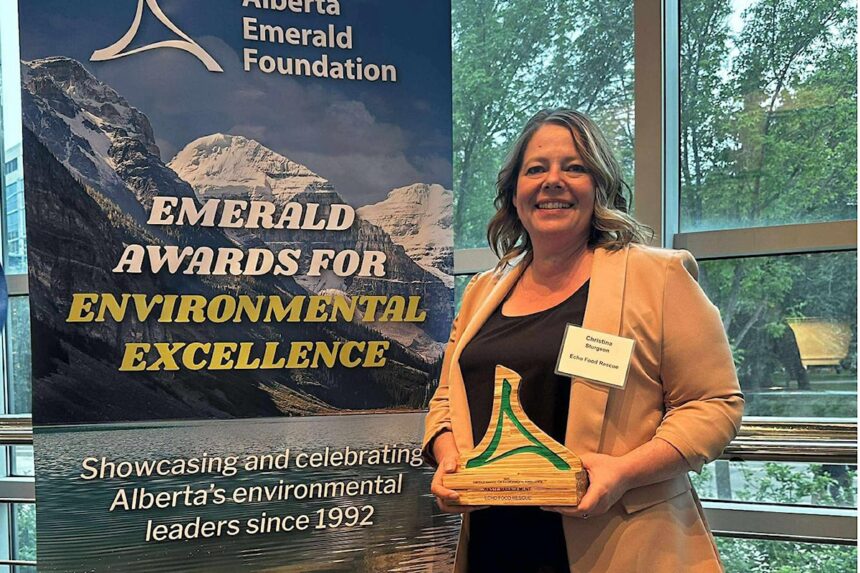In a remarkable testament to grassroots environmental innovation, Lacombe’s Echo Food Rescue has clinched a prestigious environmental award, recognizing their transformative impact on local food waste reduction. The volunteer-driven initiative, which has diverted over 45,000 pounds of food from landfills in just under two years, received the Environmental Stewardship Award from the Central Alberta Regional Environmental Coalition last week.
“When we started this journey, we simply wanted to address two problems we saw in our community—perfectly good food being wasted while people went hungry,” explains Emma Richardson, Echo Food Rescue’s founder. “We never imagined the scale of impact we’d achieve so quickly, or that we’d be recognized for our environmental contributions.”
The organization’s model is elegantly simple yet profoundly effective. Volunteers collect surplus food from local grocers, restaurants, and farms that would otherwise be discarded—often due to cosmetic imperfections or approaching best-before dates—and redistribute it to community members in need. This operation, running three days a week from their downtown Lacombe headquarters, has grown from serving 25 families initially to supporting over 200 households regularly.
Environmental assessments conducted by the Central Alberta Regional Environmental Coalition estimate that Echo’s work has prevented approximately 85 tonnes of greenhouse gas emissions by keeping organic matter out of landfills, where decomposing food typically releases methane—a potent greenhouse gas with warming potential 25 times greater than carbon dioxide.
Mayor Sarah Hoffman, who attended the award ceremony, praised the initiative as “a perfect example of how local solutions can address global challenges,” noting that “food waste represents not just a social concern but a significant environmental threat that often goes unrecognized in climate action discussions.”
The award comes with a $5,000 grant that Echo plans to use for expanding their refrigeration capacity and launching a community education program focused on food preservation techniques and waste reduction strategies for households.
What distinguishes Echo from similar programs is their comprehensive approach to the food waste hierarchy. “We don’t just rescue food,” explains operations coordinator Michael Chen. “We’ve developed a tiered system where food safe for human consumption goes to families, items suitable for animal feed go to local farms, and anything remaining is composted through our partnership with community gardens.”
The organization’s impact extends beyond environmental benefits. According to recent economic analysis, their work has saved recipient families an estimated $275,000 in grocery expenses collectively, providing significant financial relief during challenging economic times.
As communities across Canada grapple with rising food costs and increasing climate concerns, initiatives like Echo Food Rescue demonstrate how localized efforts can create meaningful environmental and social change. Their recognition comes at a critical time when Canadian municipalities are exploring sustainable waste management strategies to meet provincial emissions targets.
For a volunteer-run organization operating on a shoestring budget in a small Alberta city, this award represents validation of their community-centered approach to environmental stewardship. It also highlights how small communities can implement effective climate solutions without waiting for large-scale governmental action.
As food waste continues to account for approximately 8-10% of global greenhouse gas emissions according to UN estimates, could the Echo Food Rescue model provide a blueprint for communities nationwide seeking to address both food insecurity and environmental degradation with a single innovative approach?










